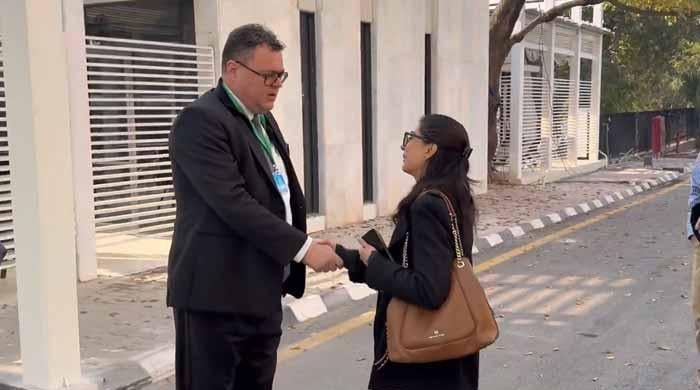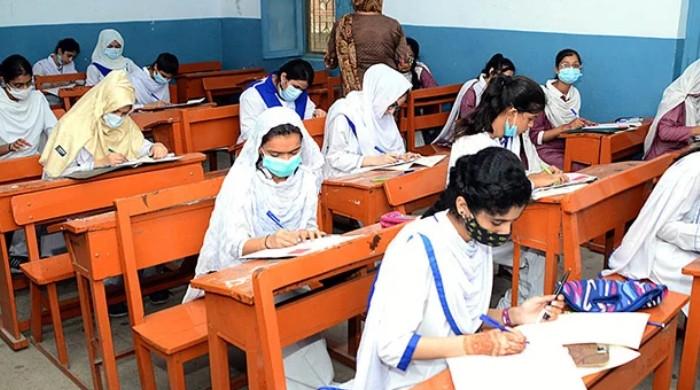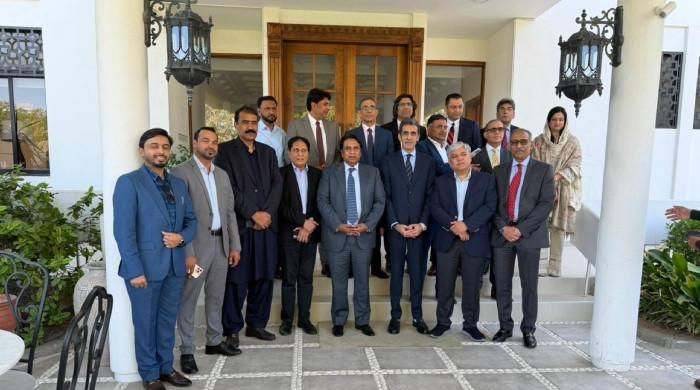Action can’t be taken against ISI's ex-DGs, US court told
NEW YORK: To the dismay of India, the US government has informed a New York court that the Inter Services Intelligence and its former chiefs “enjoy immunity” in the case filed by the relatives...
December 20, 2012
“In the view of the United States, the Inter Services Intelligence (ISI) is entitled to immunity because it is part of a foreign state within the meaning of the FSIA (Foreign Sovereign Immunities Act),” Principal Deputy Assistant Attorney General Stuart Delery told a federal court here on Dec. 17 in a submission on a case filed by the relatives and family members of the American victims of Mumbai terrorist attacks.
“Furthermore, the department of state has determined that former director generals Ahmed Shuja Pasha and Nadeem Taj are immune because plaintiffs’ allegations relate to acts that these defendants allegedly took in their official capacities as directors of an entity that is undeniably a fundamental part of the government of Pakistan,” Delery said in his 12-page affidavit.
“Because foreign sovereign immunity and foreign official immunity provide an adequate basis upon which to dispose of this case with respect to the ISI and former DG Pasha and Taj, the United States takes no position on the political question doctrine issues that are also presented in this case,” the affidavit says in its footnote in response to the court case filed by American survivors of the Mumbai terrorist attack.
In fact as many as four identical court cases were filed including one by Linda Ragsdale on August 12. A resident of Tennessee, Ragsdale was shot in her back by one of the LeT terrorist at the Oberoi Trident hotel in Mumbai. She, however, survived that attack.
“In making this immunity determination, the United States emphasizes that it expresses no view on the merits of plaintiffs’ claims.
The United States strongly condemns the terrorist attacks in Mumbai and continues to believe that the Islamic Republic of Pakistan must take steps to dismantle Lashkar-e-Taiba and to support India’s efforts to counter this terrorist threat,” the affidavit said.
The US government argues that in its view FSIA requires that the Inter-Services Intelligence Directorate of Pakistan be accorded immunity from this civil suit because ISI is a fundamental part of the government of Pakistan itself and no exception to immunity applies.
“Moreover, the Department of State has determined that the former director generals of the ISI, Ahmed Shuja Pasha and Nadeem Taj, enjoy immunity, a determination that is not subject to judicial review.
In making this determination, the United States emphasizes that it expresses no view on the merits of plaintiffs’ claims,” the affidavit said.
On the flip side, expressing "serious disappointment" over the US submission that Pakistan's intelligence agency ISI be accorded "immunity" in the case related to 26/11 filed by the relatives of victims of Mumbai terror attack, India said it was a "matter of deep and abiding concern."
India, which raised its concerns on Monday with the US State Department after being informed of the US' view, also asserted that it cannot be that any organisation, State or non-State that sponsors terrorism enjoys immunity.
Reacting to the US decision, official spokesperson in the Ministry of External Affairs said:
"We have noted that the US Department of State has taken the position in a US Court that the Pakistani ISI be accorded immunity from the civil suit on the Mumbai terrorist attack of November 26, 2008.









